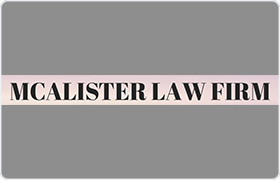Stennis Space Center Misdemeanor Lawyer, Mississippi
Sponsored Law Firm
-
 x
x

Click For More Info:
-
McAlister Law Firm, LLC
419 Security Square Gulfport, MS 39507» view mapCriminal Defense Law Your Gulf Coast Attorney
An Attorney with Nineteen years of court room experience. Licensed in the States of Mississippi and Alabama.
228-265-5190
Not enough matches for Stennis Space Center Misdemeanor lawyer.
Below are all Stennis Space Center Criminal lawyers.
Becky Allen-Farrell, PLLC
Personal Injury, Criminal, Estate, DUI-DWI
Status: In Good Standing Licensed: 23 Years
FREE CONSULTATION
CONTACTDeborah Kay Hester
Criminal, Divorce & Family Law, Real Estate
Status: In Good Standing Licensed: 41 Years
Tara Kellar Tebo
Criminal, Personal Injury, Social Security, Family Law
Status: In Good Standing Licensed: 16 Years
 Carolyn McAlister Gulfport, MS
Carolyn McAlister Gulfport, MS
